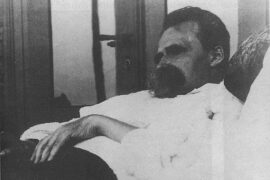Parshat Shoftim deals primarily with statutes pertaining to Israel’s leadership. Because leadership is not a position of honor for the individual but rather a burden of responsibility for the welfare of the Jewish people, the Torah sets down specific guidelines in order to steer our leaders towards attaining their full potential.
The Hebrew Concept of Melekh
“It shall be that when he sits on the throne of his kingdom, he shall write for himself two copies of this Torah in a book, from before the Kohanim, the Levi’im. It shall be with him, and he shall read from it all the days of his life, so that he will learn to fear HaShem, his G-D, to observe all the words of this Torah and these decrees, to perform them, so that his heart not become haughty over his brethren and not turn from the commandment right or left, so that he will prolong years over his kingdom, he and his sons amid Israel.” (D’varim 17:18-20)
A melekh (generally translated into English as “king”) is commanded to write and read his own Torah in order to prevent his position of leadership from creating within him a feeling of arrogance. By delving into the deeper secrets of our Torah, a melekh can gain a higher awareness that although we might each play unique roles in Israel’s national life, we are all in fact parts of a greater whole and no man can truly reign supreme over others. Even learning the Torah on a surface level enables a leader to understand the past failures of his people in order that he personally strive to correct these shortcomings and lead the Jewish people in fulfilling our collective destiny.
The ideal Torah concept of melekh differs greatly from the monarchs who have ruled over other peoples. A melekh is the concentrated expression of the collective Israeli soul – Knesset Yisrael – that expresses itself in our world through the Jewish people in space and time. The melekh does not actually rule over Israel but rather embodies the mission and aspirations of his people to the extent that he becomes a microcosm of the entire Hebrew nation and his personal identity is submerged into Israel’s collective identity.
On B’reishit 36:3, Rashi quotes our sages as teaching that just like a person getting married or a gentile naturalizing into Am Yisrael, one who rises to high office has his previous transgressions wiped clean.
The Maharal of Prague elaborates in the Gur Aryeh on Rashi’s commentary that “The reason for all three is that they become new human beings… a prince who rises to high office – before he was an individual person and now, so to speak, he ‘is’ his entire people.”
Rashi also understands the verse “And Israel sent emissaries…” (Bamidbar 21:21) to teach that “When the melekh (in this case Moshe) sends, it is as if the entire nation sends. That is why when a leader takes power, he is a new person and his previous sins are forgiven.”
As is clearly exhibited in the behavior of David, a true melekh leads Israel not by behaving with arrogance but by displaying passion and fervor in serving HaShem.
“David danced with all [his] strength before HaShem; David was girded in a linen tunic. David and the entire house of Israel brought up the Ark of HaShem with loud, joyous sound, and the sound of the shofar.” (Shmuel II 6:14-15)
David remains the paradigm of the ideal melekh, setting the ultimate standard for all future Hebrew leadership.
“His [the melekh’s] heart is the heart of the entire congregation of Israel.” (Rambam, Hilkhot Melakhim 3:6)
Like the heart, which is one of the smallest organs of a body yet provides for that body’s entire life force, a melekh generates and directs the character and vitality of the entire Hebrew nation. In this vein, the Midrash states that “The leader of the generation [represents] the entire generation.” (Bamidbar Rabbah 19:28)
The Statutes of a Melekh in Parshat Shoftim
To assist our leaders in properly fulfilling their roles, the Torah offers statutes to promote an attitude of responsibility, such as the commandment for a melekh to write for himself two copies of the Torah, as well as the following verses found at the end of Shoftim:
“If a corpse will be found on the land that HaShem, your G-D, gives you to possess it, fallen in the field, it was not known who smote him, your elders and judges shall go out and measure toward the cities that are around the corpse. It shall be that the city nearest the corpse, the elders of that city shall take a heifer, with which no work has been done, which has not pulled with a yoke. The elders of that city shall bring the heifer down to a harsh valley, which cannot be worked and cannot be sown, and they shall axe the back of its neck in the valley. The Kohanim, the offspring of Levi, shall approach, for them has HaShem, your G-D, chosen to minister to Him and to bless with the Name of HaShem, and according to their word shall be every grievance and every plague. All the elders of the city, who are closest to the corpse, shall wash their hands over the heifer that was axed in the valley. They shall speak up and say, ‘our hands have not spilled this blood, and our eyes did not see. Atone for Your nation Israel that You have redeemed O HaShem: Do not place innocent blood in the midst of Your nation Israel!’ Then the blood shall be atoned for them. But you shall remove the innocent blood from your midst when you do what is upright in the eyes of HaShem.” (D’varim 21:1-9)
While it may be difficult to imagine why anyone would suspect a pious city elder of responsibility for a mysterious local murder, Rashi explains that the elders must publicly absolve themselves from guilt in order to clarify that they were not negligent in providing the necessary security that would have prevented the spilling of blood.
Sforno adds that such defensive measures include ensuring that no known murderer is permitted to roam the area. A Jewish leader must never be negligent when dealing with the security of his people.
A great lesson is taught here – a lesson in responsibility, Ahavat Yisrael (love of Israel) and the duty that a leader bears for the defense of his people. It is clearly not enough for an individual to personally refrain from murder. He must also do everything in his power to prevent blood from being shed. And in order to save innocent people from danger, it is often necessary to neutralize whatever security threats might exist. The Torah teaches this to be a major responsibility of both local and national leadership.
The Maharal offers a profound insight on this point. He teaches that these verses imply that the murder could have been avoided had the victim been escorted by someone from the city. While there is no legal requirement to accompany a traveler all the way to his destination, the Maharal explains that when a host takes the trouble to escort a stranger on his journey, he demonstrates solidarity with a fellow Jew and with the entire Hebrew nation. This is achieved through the mere performance of going out of one’s way for another, even if not specifically mandated. When one demonstrates such Ahavat Yisrael, HaShem provides extra protection and the possibility of a tragedy occurring is diminished.
True love breeds responsibility. A Jew cannot exist independent of his people and Hebrew leadership demands the attributes of compassion and responsibility in order to succeed in guiding and protecting the children of Israel. Our sages teach that Jerusalem was destroyed as a result of baseless hatred between Jews. Jerusalem will be rebuilt as a result of a limitless love – a love that will breed courage, humility and collective responsibility, ultimately shining its light to the entire world and engulfing humanity in the Divine blessing of HaShem.





